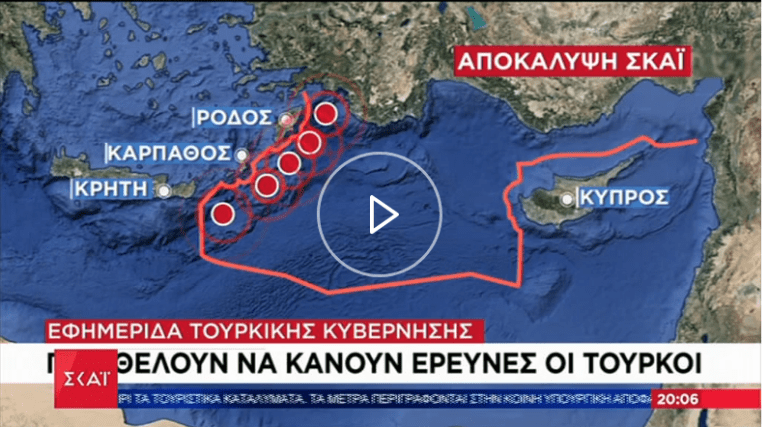Turkey plans to drill for oil near the Greek islands of Crete, Kasos, Karpathos and Rhodes based on a controversial maritime border agreement signed with the Libyan Government of National Accord in November 2019.
Requests for drilling submitted by the Turkish Petroleum Corporation (TPAO) to the General Directorate of Mines and Petroleum have been published in the official gazette of Turkey on Saturday.
The requests detail how TPAO wants to conduct hydrocarbon exploration in sections of 24 blocks, all of which come within or beyond 6 nautical miles of the coasts of eastern Crete, Kasos, Karpathos and Rhodes, and overlap the Greek continental shelf.

According to the news website Ahval, Turkish Energy Minister, Fatih Donmez, announced that this drilling for oil may begin in the eastern Mediterranean within three or four months.
“Within the framework of the agreement we reached with Libya, we will be able to start our oil exploration operations there within three to four months,” Donmez said during a ceremony to mark the launch of Turkey’s oil-and-gas drilling ship, the “Fatih.”
Greece, Cyprus, Egypt and other countries oppose the agreement and have flatly termed it illegal.
In fact, Greek Foreign Affairs Minister, Nikos Dendias, said on Monday that Greece was ready to deal with Turkey’s latest challenge, if the neighboring country intended to pursue it.

“Turkey is trying to usurp the sovereign rights of Greece,” Dendias said in a statement, pointing out that this planned drilling action stems from “the null and void Turkey-Libya memorandum.”
“We should be clear on this. Our positions on this specific issue and on the consequences of Turkey’s illegal conduct are a given. Turkey has repeatedly been informed of these positions. Greece has been and remains fully prepared to respond to this provocation as well, should Turkey decide in the end to go through with it.”
This regional dispute over mineral rights only seems to be deepening as the Turkish ambassador in Athens was also summoned to the Foreign Ministry on Monday to receive a formal complaint from the Greek government.

